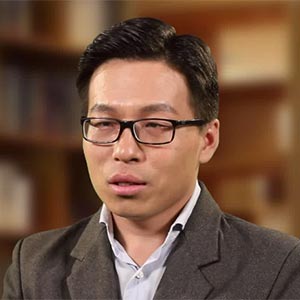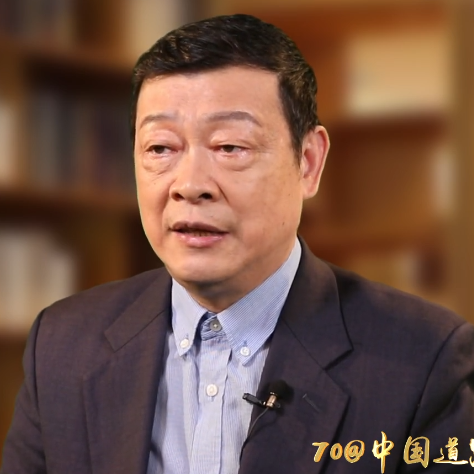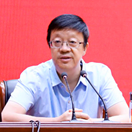改革开放,关键抉择
1978年12月中共十一届三中全会召开,正式拉开了改革开放的大幕。
此后40多年的实践证明,改革开放是决定中国当代命运的关键一招。
中国的改革首先从农村开始的。
1978年,安徽省滁州市凤阳县小岗村,正值大旱。
为了填饱肚子,村里的生产队队长严俊昌召集了18户户主围坐在煤油灯前,秘密商讨分田单干。
在一张皱巴巴的字据上,18位农民按下了充满悲壮意味的鲜红手印。
这份“生死契约”内容非常简单:“我们分田到户,每户户主签字盖章。
如以后能干,每户保证完成每户的全年上交和公粮,不在(再)向国家伸手要钱要粮。
如不成,我们干部作(坐)牢刹(杀)头也干(甘)心,大家社员也保证把我们的小孩养活到十八岁。”
由于当时气氛紧张,这份具有历史意义的“生死契约”写得歪歪扭扭,而且还有错别字。
18位农民没有想到,他们被饥饿逼迫而成的这份“生死契约”竟无意间成了中国农村改革的宣言书。
不久,中国农村改革的大幕在全国拉开。
家庭联产承包责任制在全国普遍推开。
实践证明,家庭联产承包责任制的实行,使中国广大农民获得了充分的经营自主权,极大地调动了农民的积极性,发展了农村生产力。
1965年美国人均GDP是中国的41倍,到1978年,美国人均GDP(9687美元)达到了中国(127美元)的76倍,并且差距还在不断拉大。
欧洲国家已经形成了高速公路网,而中国连一条高速公路也没有;在法国,马赛的索尔梅尔钢厂年产350万吨钢仅用7000名左右的工人,对比之下武汉钢铁生产230万吨需要近67000名工人。
中西差距之大可见一斑!
面对这种情况,通过一系列的考察调研、商讨后,中共中央决定打开国门搞建设。
1979年7月,中共中央和国务院根据广东、福建两省靠近港澳、华侨众多的有利条件,决定对两省的对外经济活动实行特殊政策和优惠措施。
1980年5月,又决定在广东的深圳、珠海、汕头和福建的厦门设置经济特区。
随后的几年时间里,又陆续决定开放大连、秦皇岛、天津、烟台等14个沿海港口城市和分两步开放长江三角洲、珠江三角洲、闽南厦漳泉三角地区、辽东半岛、胶东半岛,并设立海南省、建立海南经济特区。
但就在国家发展的紧要关头,一些人却对改革开放提出了姓“社”还是姓“资”的疑问,对党的基本路线产生了动摇。
这样一种认识,严重妨碍改革开放的深化,特别是对市场经济的严厉批评,更是让人担忧有走回头路的危险。
在此关键时刻,1992年初,邓小平视察南方,发表重要谈话,深刻回答了长期困扰和束缚人民思想的许多重大认识问题。
强调基本路线动摇不得,计划和市场都是手段,提出社会主义的本质是通过解放生产力和发展生产力最终达到共同富裕,要抓住时机发展自己。
1992年10月,中国共产党第十四次全国代表大会召开。大会确立建设有中国特色社会主义的理论在全党的指导地位,明确中国经济体制改革的目标是建立社会主义市场经济体制,并要求全党抓住机遇、加快发展,集中精力把经济建设搞上去。
以邓小平南方谈话和党的十四大为标志,中国社会主义改革开放和社会主义现代化建设事业进入新的发展阶段。
方向决定道路,道路决定命运。
改革开放以来,中国共产党领导中国人民取得的根本成就,正是在于开创和发展了中国特色社会主义。
2013年,中共中央总书记习近平曾指出,中国特色社会主义这条道路来之不易。“它是在改革开放30多年的伟大实践中走出来的,是在中华人民共和国成立60多年的持续探索中走出来的,是在对近代以来170多年中华民族发展历程的深刻总结中走出来的,是在对中华民族5000多年悠久文明的传承中走出来的,具有深厚的历史渊源和广泛的现实基础。”
现在,最关键的是坚定不移走这条道路、与时俱进拓展这条道路,推动中国特色社会主义道路越走越宽广。
Reform and Opening-up,a Brilliant Stroke.
In December 1978, the Third Plenary Session of the 11th Central Committee of the Communist Party of China (CPC) was held, ushering in the historic policy of reform and opening up.
It has been proved over the following 40-plus years that reform and opening up is a vital step to seal the destiny of contemporary China.
The reform firstly started from the countryside.
In 1978, Xiaogang Village (in Fengyang County, Chuzhou City, Anhui Province) suffered a severe drought.
To go through it, Yan Junchang, the leader of the village's production team, called together 18 householders to sit around a kerosene lamp and hold secret discussions on dividing the farmland among themselves.
The 18 farmers put their fingerprints in red ink on a crumpled written agreement.
The content of this contract was very simple.It read,“We allot farmland to households under contract.Each householder must give their signature or fingerprint here.
If it works, each household must ensure the fulfillment of contracted grain to the state and promise not to ask for assistance from the government for grain and money.
If we fail, we —the village leaders —are ready to be put in jail and other commune members pledge to take care of all of our children until they are 18 years old."
As these farmers were scared and heavy-hearted, this historic contract was written in a scrawled way. There were even some wrongly written characters.
They did not expect that this contract made against the backdrop of hunger inadvertently became a manifesto of reform in rural areas.
Before long, China's rural reform kicked off nationwide.
The household contract responsibility system was widely introduced throughout the country.
The practice has proved that the implementation of the contract responsibility system has enabled the broad masses of Chinese farmers to obtain the right to manage land, which greatly aroused their initiative and developed rural productivity.
The per capita GDP of the United States was 41 times that of China in 1965, and reached 76 times that of China (US$127) in 1978. The gap was still widening.
European countries had established their highway networks, while in China there was no highway at all; in Marseille of France, the annual output of 3.5 million metric tons of steel at the Salmer steel plant only required about 7,000 workers, while nearly 67,000 workers just produced 2.3 million metric tons in the Wuhan iron and steel plant.
What a huge gap between China and the West!
Based on a series of investigations and discussions, the CPC Central Committee decided to open up to the world for better development.
In July 1979, the CPC Central Committee and the State Council decided to implement special policies and preferential measures to facilitate foreign economic activities in Guangdong and Fujian provinces, based on the favorable conditions that both provinces were adjacent to Hong Kong and Macao, and had a large number of overseas Chinese.
In May 1980, China planned to set up special economic zones in Shenzhen, Zhuhai and Shantou in Guangdong Province and Xiamen in Fujian Province.
In the following years, China opened up 14 coastal cities such as Dalian, Qinhuangdao, Tianjin and Yantai, opened up in two steps the Yangtze River Delta, Pearl River Delta, Xiamen-Zhangzhou-Quanzhou Triangle in southern Fujian, Liaodong Peninsula and Jiaodong Peninsula,set up Hainan Province and established the Hainan Special Economic Zone.
However, at the critical moment of national development, some people questioned whether the reform and opening up should be surnamed socialism or capitalism, and began to waver in their adherence to the Party's basic line.
Such a misunderstanding seriously hindered the deepening of reform and opening up. Especially the severe criticism of the market economy made people worry about the danger of turning back to old approaches.
At this crucial moment, Deng Xiaoping visited southern China and delivered important speeches in early 1992, answering many questions that had long plagued people.
He stressed that we should not waver in our adherence to the basic line, and that planning and market forces are both means of controlling economic activities. He proposed that the essence of socialism is to achieve common prosperity by liberating and developing productive forces, and we should seize the opportunity to improve ourselves .
In October 1992, the 14th National Congress of the CPC was held. The Congress established the guiding position of the theory of building socialism with Chinese characteristics, made it clear that the goal of China's economic system reform is to build a socialist market economic system, and required the whole Party to seize the opportunity, accelerate development, and concentrate on economic construction.
Marked by Deng Xiaoping's talks during his southern tour and the 14th National Congress of the CPC, China's reform and opening up as well as socialist modernization has since entered a new phase of development.
The direction determines the path, and the path determines the future.
Since the reform and opening up, the Chinese people have made fundamental achievements under the leadership of the CPC, that is, creating and developing socialism with Chinese characteristics.
Xi Jinping, general secretary of the CPC Central Committee, said in 2013 that the path of socialism with Chinese characteristics has not come easily. "It has been forged through more than 30 years of reform and opening up, through more than 60 years of continuous exploration since the founding of the People's Republic of China, through the profound summary of more than 170 years of development of the Chinese nation in modern times, and through the inheritance of the over 5,000-year-oldChinese civilization. It has a profound historical origin and an extensive practical foundation."
Now, what matters most is to unswervingly follow this path, keep pace with the times to expand this path, and continue to open up the path of socialism with Chinese characteristics.
《红星何以照耀中国》 / 中国网出品
出品人 / 王晓辉
总监制 / 杨新华
总策划 / 蔡晓娟
执行策划 / 蒋新宇
专家顾问 / 陈述 中共中央党校教授 陈中奎 中国人民解放军国防大学副教授
导演 / 仇俊博
编导 / 申罡 时畅 郭泽涵 鲁波 孔竟泽
设计 / 顾榕楠
制作 / 马跃
翻译 / 汪玮 李秀宇
摄影 / 陶世欣 毛欢东
后期 / 于舜源 傅华洋








